I'm using SQL Server 2005/2008. I need to add a column to a table if it does not yet exist. This will apply to all tables in a given database. I hoped I was close, but I'm having issues with this solution.
How can this be done?
Here's what I have:
EXEC sp_MSforeachtable '
declare @tblname varchar(255);
SET @tblname = PARSENAME("?",1);
if not exists (select column_name from INFORMATION_SCHEMA.columns
where table_name = @tblname and column_name = ''CreatedOn'')
begin
ALTER TABLE @tblname ADD CreatedOn datetime NOT NULL DEFAULT getdate();
end
'
But I get errors:
Error 102: Incorrect syntax near '@tblname'. Incorrect syntax near 'CreatedOn'. Incorrect syntax near '@tblname'. Incorrect syntax near 'CreatedOn'. ... and so on, for each table.
